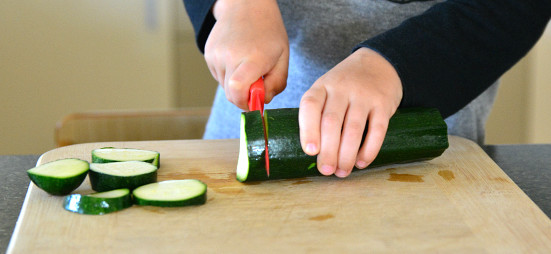
Healthy risk is good. Kids are safer when they know how to cope.
My son burned his finger the other day as he was helping me cook. I love it when these things happen. Not the pain, of course. What I love is when kids engage in real life and learn how to cope.
We'd talked about the pot being hot and using potholders, but still his finger landed on the rim of the hot pot and he jerked it away the way our bodies teach us in an instant. "You burned your finger," I said. "Put it under cold, running water." We turned the tap on.
I'm sure he'll burn his finger slightly again someday. But here's what he won't forget: what to do about it. He'll stick it into cold, running water.
My father used to teach us how to fall. He encouraged us to balance on logs, jump across streams that were too big for us, and go rock hopping, but he prepared us by teaching us what to do when we fell. The assumption is that sometimes you will fall. If you are living. If you are trying. If you are exploring and discovering and engaging.
Instead of sheltering kids from the burn or the fall, teach them what to do when it happens. This is true of any healthy risk we let our kids take, including sad and angry emotions. Learning how to cope with the ouches of life is what kids need. It's a lot more safe than sheltering.
Healthy risks young kids can try -
- cutting with a sharp knife
- using a real hammer and saw
- running too fast on concrete
- climbing
- leaping from rock to rock
- hauling heavy bricks
- handling sharp needles and scissors
- cooking with supervision
- playing alone
- playing outside alone
- walking to the neighbor's to deliver a message
- asking someone to play
- being told no
My new book delves into why we should put Safety Second. We live in a world of "safety first," but safety first doesn't create full human beings. Safety needs to be part of what we do, but when safety edges out healthy life experiences like playing with sticks in the park and using real tools, we need to err on the side of life.
What types of play or experiences have you seen adults ban recently? What risks do you welcome for yourself or children in your life? What healthy risks are you willing to give a try?
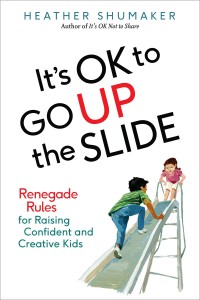 Read more about Safety Second and benefits of healthy risk in the new book "It's OK to Go Up the Slide." Read it? REVIEW it on Amazon or Goodreads.
Read more about Safety Second and benefits of healthy risk in the new book "It's OK to Go Up the Slide." Read it? REVIEW it on Amazon or Goodreads.

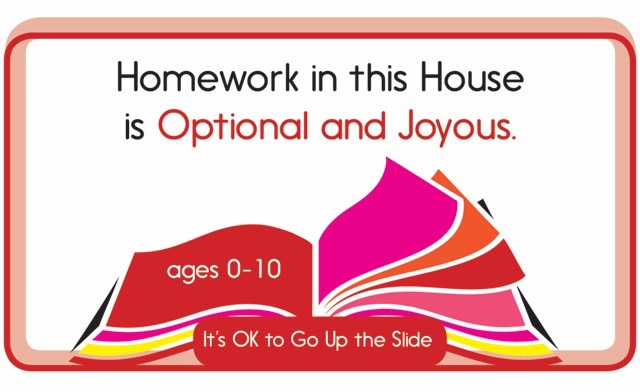
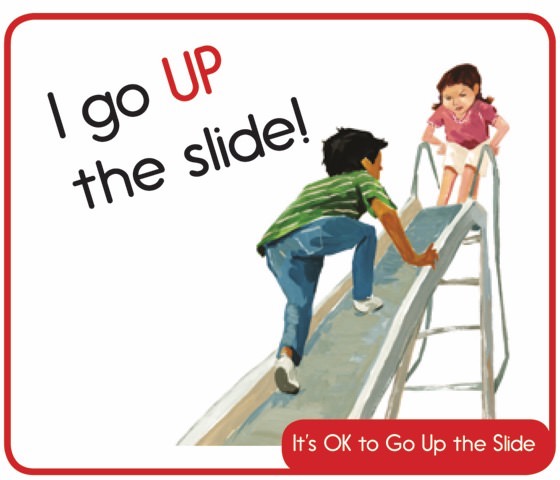
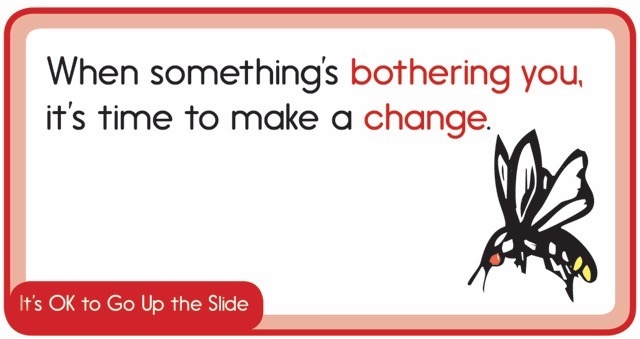
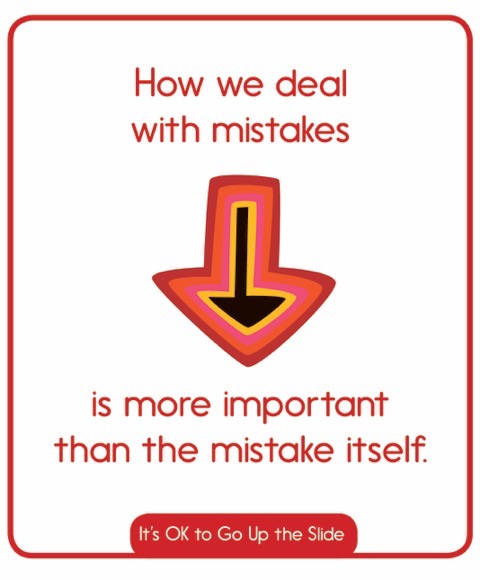
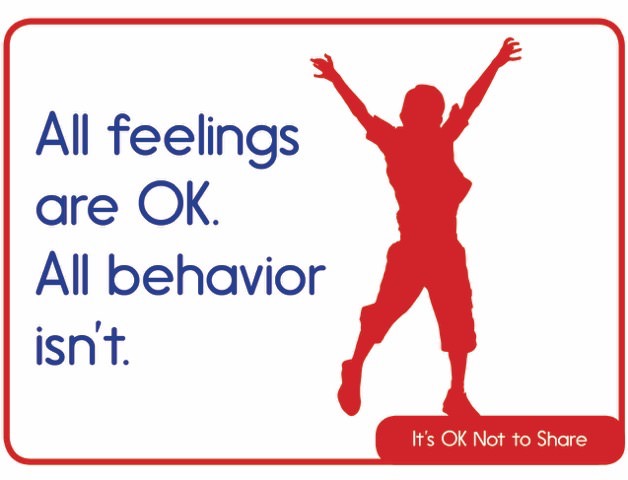
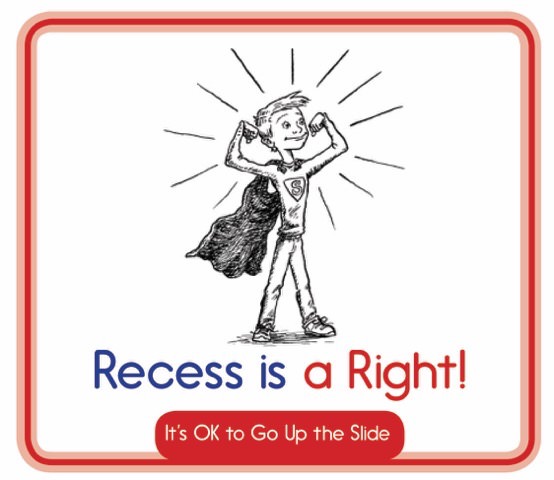
Makes sense to me!
I was astonished this weekend when at an overnight SCOUT camp all the children were told by the director NOT to run outdoors as they might trip and get hurt. I thought Scouting was supposed to be all about outdoor activity! On a similar note, a friend shared how her son's finger started bleeding at soccer practice after being hit by a ball (who would have thunk, at a soccer practice?) The hit aggravated a prior injury, which the 8-year old calmly explained. My friend, however, who had taken her other two children for a walk away from the field, subsequently received a stern notice that the soccer league was not a drop-off program, that coaches were not responsible (!) and parents were required to be in physical attendance at all times. For safety's sake, of course. Good grief.
Oh my. No running outdoors at Scout camp? Now there's a place where children should be experiencing burned fingers - from building campfires. And running!
I love this! I've pretended I didn't see "no running" signs in places where it made no sense to me to limit running. And since my kids can't yet read, they were none the wiser. 🙂
I also love the idea of teaching them how to fall, as well as teaching other safety skills (such as how to cross the street). But I'm not always sure of the best ways to do that teaching, or how to judge that the kids understand a skill well enough to tackle the next challenge (such as crossing the street alone).
I've read Gavin de Becker's "Protecting The Gift" and I'm familiar with (but need to revisit now that my kids are older) Free Range Kids. Do you have other good resources for helping parents give their kids the skills they need to take reasonable risks and assess which ones the kids are ready for?
Glad you're running! Crossing the street - observe your children when they don't know you're watching, or announce you're going to let them try and see what they do. In both cases you can be nearby enough to step in if necessary. For non-life and death things, go ahead and give them a chance to try the new challenges. If you wonder if they're old enough, they probably are. Try interviewing someone from an older generation to find out what kids their age used to do. Good luck and enjoy your confident, capable kids.
Love your message and hope parents everywhere will see how it applies to academic challenges young children face as well. Teachers and parents need to create safe environments in which children can take risks in their pursuit of new knowledge and recognize how a perceived failure can fuel future success. It's not about the failing moment, be it a test or assignment or wrong answer in class. The most important thing is what we do and model after a failed experience that counts for that is often where true learning takes place, perseverance is learned and growth is possible. Adversity builds strength and confidence. In the words of Mary Poppins, we are all "perfectly imperfect". Thank you for sharing your message.
Ah, yes. Thanks for bringing up the academic side. Love your words "The most important thing is what we do and model after a failed experience that counts." Our reaction matters, and school learning is often focused on getting things right and looking good, but failure and healthy reactions to failure are so much more important. Mary Poppins has it right again.
What types of play or experiences have you seen adults ban recently? Hmm, where do I start.
1. When my daughter was 18 months old, I was chided by a passer-by for letting my daughter play about two feet from a street trash can while waiting in a bus station. `What if she touches it?" (I'll wash her hands?)
2. When my daughter was 2 years old, I was forbidden to let her climb up and down the stairs of a restaurant terrace. "She's going to fall, and you are going to sue me!" (No and no.)
3. When my daughter was 3 years old, I was scolded for letting her unattended in the house (which was locked up tight) while I was napping. "What if she burns the house down or injures herself?" (No she won't. Trust me to know what my own kid can handle?).
4. When my daughter was 4 years old, we were scolded for keeping blunt but sharp scissors on her craft table, and also letting her play with coins and buttons. "She may injure herself! She might swallow them and choke!" (Why would she do that?)
5. When my daughter was 5 years old, we got a scolding by park rangers because she was jumping from rock to rock at the beach. "The rocks are slippery and she may fall!" (She's barefoot for better grip, and she's been doing that for a week already with no harm.).
These are just some samples of the many times over the years we have had conversations on this topic. People, this kid only learns from experience (possibly all kids do?). Let her have the experience. We promise you we are doing the utmost to control any serious danger. She's 6 now, and she has not injured herself or destroyed property.
Thanks for the new book! I loved "It's OK not to share". It was a breath of fresh air.
The one that hurts my heart most is the park ranger story. Kids out in nature should be celebrated and encouraged, not shut down. Thank you for sharing your stories and for keeping a level head!
The ironic part about the park rangers story was that there was a playground near the beach that the rangers closed for days after every trickle of rain ("Slippery playground equipment is dangerous!"). Well, at least open the playground if you don't want the kids to play on the rocks! I couldn't have made this stuff up if I tried.
Kids are taught to fear nature these days from all angles. Nature is messy, muddy and icky. Some of my daughter's playmates on that vacation would freak out if they stepped with their sandals in a mud puddle and would insist their parents clean it. And nature has critters. My daughter was afraid initially to climb on the seaside rocks because of the tiny crabs scuttling between them, so my husband convinced her to hold a few and let them scuttle over her arms and shoulder, to see they tickle but don't pinch. That worked for her, but the other parents were shocked and were cautioning my husband that she might catch a disease. My husband was annoyed enough to tell them that these are not the right kind of crabs to catch a disease from 🙂
It's not as if we do this to espouse a particular child rearing philosophy; me and my husband were merely born in different times and places, and by those standards we are worrywarts with our own child. And the vast majority of young child rearing advice we see in North America seems to run counter to our desire to raise an independent, self-sufficient adult. Which is why I LOVE your books. I finally have something to point to: "See, we are not crazy and reckless!".